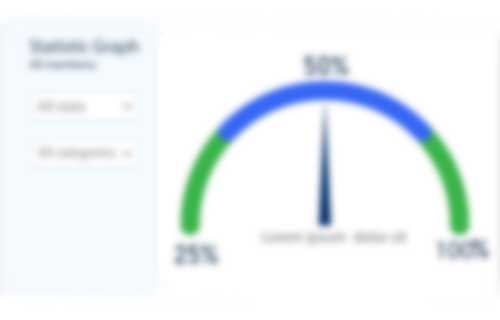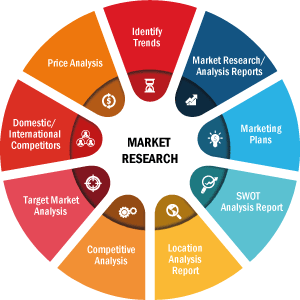The Ready to Drink Tea Market is expected to register a CAGR of 9.3% from 2025 to 2031, with a market size expanding from US$ XX Million in 2024 to US$ XX Million by 2031.
The ready to drink tea market report is segmented by Product Type (Black Tea, Green Tea, Oolong Tea, and Others), Packaging Type (Bottles, Cans, and Others), Category (Organic and Conventional), and Distribution Channel (Supermarkets and Hypermarkets, Convenience Stores, Online Retail, and Others). The market size and forecast at global, regional, and country levels for all the key market segments are covered under the scope. The report offers the value in USD for the above analysis, segments, regions, and countries. The report covers market trends, as well as market dynamics such as drivers, restraints, and key opportunities. The report also covers industry landscape and competition analysis covering market concentration, heat map analysis, prominent players, and recent developments in the market.
Purpose of the ReportThe report Ready to Drink Tea Market by The Insight Partners aims to describe the present landscape and future growth, top driving factors, challenges, and opportunities. This will provide insights to various business stakeholders, such as:
- Technology Providers/Manufacturers: To understand the evolving market dynamics and know the potential growth opportunities, enabling them to make informed strategic decisions.
- Investors: To conduct a comprehensive trend analysis regarding the market growth rate, market financial projections, and opportunities that exist across the value chain.
- Regulatory bodies: To regulate policies and police activities in the market with the aim of minimizing abuse, preserving investor trust and confidence, and upholding the integrity and stability of the market.
Ready to Drink Tea Market Segmentation
Product Type- Black Tea
- Green Tea
- Oolong Tea
- Bottles
- Cans
- Organic and Conventional
- Supermarkets and Hypermarkets
- Convenience Stores
- Online Retail
Strategic Insights
Ready to Drink Tea Market Growth Drivers- Increasing Health Consciousness: As consumers become more health-conscious, they are shifting towards beverages with functional benefits. Ready-to-drink (RTD) teas, which are often low in calories and rich in antioxidants, cater to this demand. These health benefits, along with claims such as detoxifying and boosting immunity, are driving the growth of the RTD tea market globally.
- Rising Demand for Convenient Beverages: The fast-paced lifestyle of modern consumers is increasing the demand for convenient, on-the-go beverage options. RTD teas, available in ready-to-consume bottles or cans, offer a quick, refreshing alternative to traditional beverages. The convenience factor, along with variety and taste options, is a significant driver for the RTD tea market's expansion.
- Growing Popularity of Tea-Based Beverages: Tea consumption is on the rise globally, driven by a growing interest in diverse tea varieties and flavors. The increasing popularity of green tea, herbal teas, and specialty blends has led to greater market innovation. RTD tea products cater to this demand by offering a wide range of tea flavors, contributing to the market's growth.
- Surge in Demand for Functional and Wellness Teas: Consumers are increasingly seeking functional beverages that offer health benefits beyond basic hydration. RTD teas with added vitamins, minerals, adaptogens, and herbal extracts are becoming more popular. These functional teas, marketed for their stress-relief, digestive, or immunity-boosting properties, are shaping the future of the RTD tea market by appealing to health-conscious consumers.
- Focus on Natural and Organic Ingredients: As consumers demand more transparency in food and beverage products, the RTD tea market is shifting towards natural, organic, and clean-label offerings. Consumers are looking for teas made from organic leaves, free from artificial additives, sweeteners, and preservatives. This trend toward natural ingredients is encouraging brands to innovate and meet consumer preferences for healthier, sustainable options.
- Popularity of Premium and Artisan RTD Teas: There is a growing demand for premium and artisan RTD teas, as consumers are willing to pay more for high-quality, authentic tea experiences. This trend is driven by an interest in specialty teas, including rare and single-origin varieties. Premium RTD tea products that offer distinct flavors, health benefits, and unique ingredients are gaining popularity among tea enthusiasts.
- Expansion into Emerging Markets: The RTD tea market presents significant opportunities for growth in emerging markets such as Asia-Pacific, Latin America, and the Middle East. Increasing disposable income, urbanization, and changing lifestyles in these regions are creating a growing consumer base for ready-to-drink beverages. Expanding distribution channels in these regions can open up new avenues for market players.
- Development of Customizable and Personalized RTD Teas: As consumers seek more personalized products, there is an opportunity for brands to develop customizable RTD tea offerings. This includes options for adding flavors, sweeteners, or functional ingredients like probiotics or collagen. Offering tailored beverage experiences can help brands cater to the evolving preferences of health-conscious and experience-driven consumers.
- Launch of Sustainable Packaging Solutions: With growing environmental concerns, there is an opportunity for companies to differentiate themselves by adopting sustainable packaging solutions for RTD teas. Using recyclable, biodegradable, or refillable containers can appeal to environmentally conscious consumers. This focus on eco-friendly packaging aligns with the broader trend of sustainability and can enhance brand reputation in the competitive RTD tea market.
Market Report Scope
Key Selling Points
- Comprehensive Coverage: The report comprehensively covers the analysis of products, services, types, and end users of the Ready to Drink Tea Market, providing a holistic landscape.
- Expert Analysis: The report is compiled based on the in-depth understanding of industry experts and analysts.
- Up-to-date Information: The report assures business relevance due to its coverage of recent information and data trends.
- Customization Options: This report can be customized to cater to specific client requirements and suit the business strategies aptly.
The research report on the Ready to Drink Tea Market can, therefore, help spearhead the trail of decoding and understanding the industry scenario and growth prospects. Although there can be a few valid concerns, the overall benefits of this report tend to outweigh the disadvantages.
REGIONAL FRAMEWORK
Have a question?

Shejal
Shejal will walk you through a 15-minute call to present the report’s content and answer all queries if you have any.
 Speak to Analyst
Speak to Analyst
- Sample PDF showcases the content structure and the nature of the information with qualitative and quantitative analysis.
- Request discounts available for Start-Ups & Universities
- Sample PDF showcases the content structure and the nature of the information with qualitative and quantitative analysis.
- Request discounts available for Start-Ups & Universities

Report Coverage
Revenue forecast, Company Analysis, Industry landscape, Growth factors, and Trends

Segment Covered
This text is related
to segments covered.

Regional Scope
North America, Europe, Asia Pacific, Middle East & Africa, South & Central America

Country Scope
This text is related
to country scope.
Frequently Asked Questions
The ready to drink tea market is estimated to witness a CAGR of 9.3% from 2025 to 2031
Growing popularity of tea-based beverages is driving the market growth.
THE COCA-COLA COMPANY, BearField BV, Steaz – Coffeeberry, Nestle, Starbucks Corporation, Arizona Beverages, PepsiCo, The Republic of Tea, and Harney and Sons Fine Teas are the key players operating in the ready to drink tea market.
Based on product type, the green tea segment is expected to witness the fastest growth during the forecast period.
Based on geography, Asia Pacific held the largest share of the ready to drink tea market.
Focus on natural and organic ingredients is expected to be the key market trends.
- THE COCA-COLA COMPANY
- BearField BV
- Steaz ? Coffeeberry
- Nestle
- Starbucks Corporation
- Arizona Beverages
- PepsiCo
- The Republic of Tea
- Harney and Sons Fine Teas
The Insight Partners performs research in 4 major stages: Data Collection & Secondary Research, Primary Research, Data Analysis and Data Triangulation & Final Review.
- Data Collection and Secondary Research:
As a market research and consulting firm operating from a decade, we have published many reports and advised several clients across the globe. First step for any study will start with an assessment of currently available data and insights from existing reports. Further, historical and current market information is collected from Investor Presentations, Annual Reports, SEC Filings, etc., and other information related to company’s performance and market positioning are gathered from Paid Databases (Factiva, Hoovers, and Reuters) and various other publications available in public domain.
Several associations trade associates, technical forums, institutes, societies and organizations are accessed to gain technical as well as market related insights through their publications such as research papers, blogs and press releases related to the studies are referred to get cues about the market. Further, white papers, journals, magazines, and other news articles published in the last 3 years are scrutinized and analyzed to understand the current market trends.
- Primary Research:
The primarily interview analysis comprise of data obtained from industry participants interview and answers to survey questions gathered by in-house primary team.
For primary research, interviews are conducted with industry experts/CEOs/Marketing Managers/Sales Managers/VPs/Subject Matter Experts from both demand and supply side to get a 360-degree view of the market. The primary team conducts several interviews based on the complexity of the markets to understand the various market trends and dynamics which makes research more credible and precise.
A typical research interview fulfils the following functions:
- Provides first-hand information on the market size, market trends, growth trends, competitive landscape, and outlook
- Validates and strengthens in-house secondary research findings
- Develops the analysis team’s expertise and market understanding
Primary research involves email interactions and telephone interviews for each market, category, segment, and sub-segment across geographies. The participants who typically take part in such a process include, but are not limited to:
- Industry participants: VPs, business development managers, market intelligence managers and national sales managers
- Outside experts: Valuation experts, research analysts and key opinion leaders specializing in the electronics and semiconductor industry.
Below is the breakup of our primary respondents by company, designation, and region:

Once we receive the confirmation from primary research sources or primary respondents, we finalize the base year market estimation and forecast the data as per the macroeconomic and microeconomic factors assessed during data collection.
- Data Analysis:
Once data is validated through both secondary as well as primary respondents, we finalize the market estimations by hypothesis formulation and factor analysis at regional and country level.
- 3.1 Macro-Economic Factor Analysis:
We analyse macroeconomic indicators such the gross domestic product (GDP), increase in the demand for goods and services across industries, technological advancement, regional economic growth, governmental policies, the influence of COVID-19, PEST analysis, and other aspects. This analysis aids in setting benchmarks for various nations/regions and approximating market splits. Additionally, the general trend of the aforementioned components aid in determining the market's development possibilities.
- 3.2 Country Level Data:
Various factors that are especially aligned to the country are taken into account to determine the market size for a certain area and country, including the presence of vendors, such as headquarters and offices, the country's GDP, demand patterns, and industry growth. To comprehend the market dynamics for the nation, a number of growth variables, inhibitors, application areas, and current market trends are researched. The aforementioned elements aid in determining the country's overall market's growth potential.
- 3.3 Company Profile:
The “Table of Contents” is formulated by listing and analyzing more than 25 - 30 companies operating in the market ecosystem across geographies. However, we profile only 10 companies as a standard practice in our syndicate reports. These 10 companies comprise leading, emerging, and regional players. Nonetheless, our analysis is not restricted to the 10 listed companies, we also analyze other companies present in the market to develop a holistic view and understand the prevailing trends. The “Company Profiles” section in the report covers key facts, business description, products & services, financial information, SWOT analysis, and key developments. The financial information presented is extracted from the annual reports and official documents of the publicly listed companies. Upon collecting the information for the sections of respective companies, we verify them via various primary sources and then compile the data in respective company profiles. The company level information helps us in deriving the base number as well as in forecasting the market size.
- 3.4 Developing Base Number:
Aggregation of sales statistics (2020-2022) and macro-economic factor, and other secondary and primary research insights are utilized to arrive at base number and related market shares for 2022. The data gaps are identified in this step and relevant market data is analyzed, collected from paid primary interviews or databases. On finalizing the base year market size, forecasts are developed on the basis of macro-economic, industry and market growth factors and company level analysis.
- Data Triangulation and Final Review:
The market findings and base year market size calculations are validated from supply as well as demand side. Demand side validations are based on macro-economic factor analysis and benchmarks for respective regions and countries. In case of supply side validations, revenues of major companies are estimated (in case not available) based on industry benchmark, approximate number of employees, product portfolio, and primary interviews revenues are gathered. Further revenue from target product/service segment is assessed to avoid overshooting of market statistics. In case of heavy deviations between supply and demand side values, all thes steps are repeated to achieve synchronization.
We follow an iterative model, wherein we share our research findings with Subject Matter Experts (SME’s) and Key Opinion Leaders (KOLs) until consensus view of the market is not formulated – this model negates any drastic deviation in the opinions of experts. Only validated and universally acceptable research findings are quoted in our reports.
We have important check points that we use to validate our research findings – which we call – data triangulation, where we validate the information, we generate from secondary sources with primary interviews and then we re-validate with our internal data bases and Subject matter experts. This comprehensive model enables us to deliver high quality, reliable data in shortest possible time.





 Get Free Sample For
Get Free Sample For